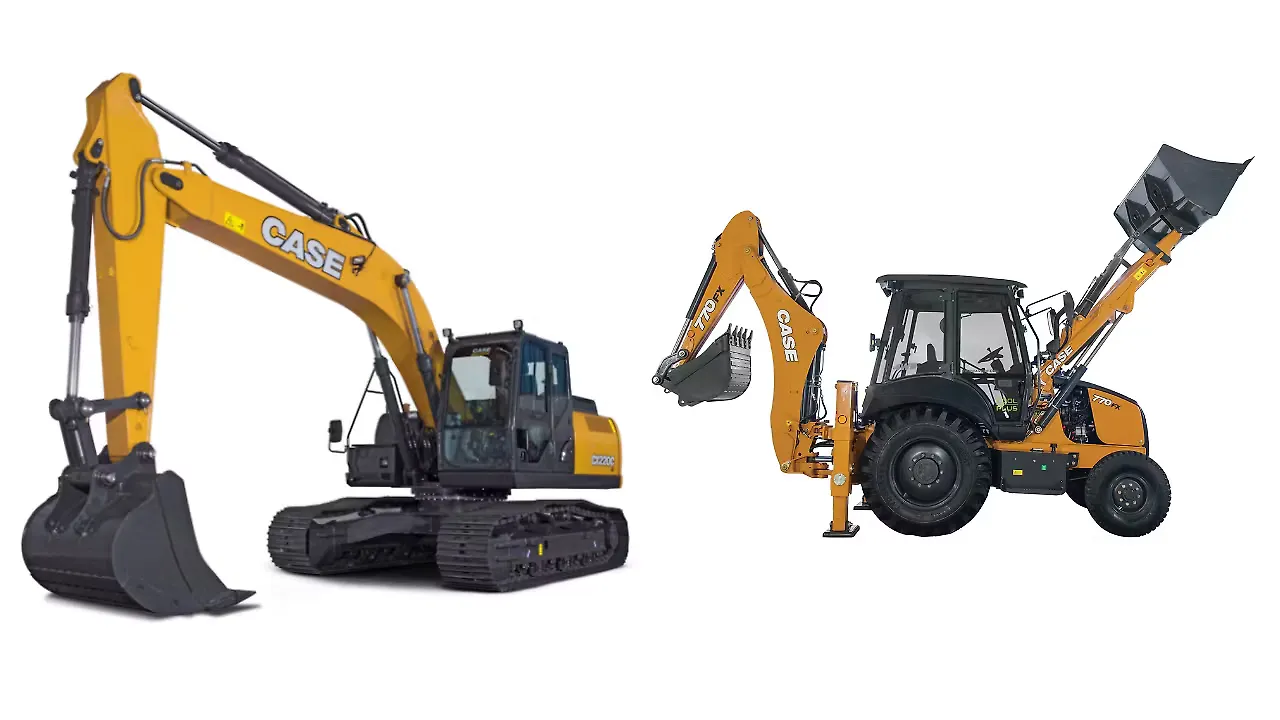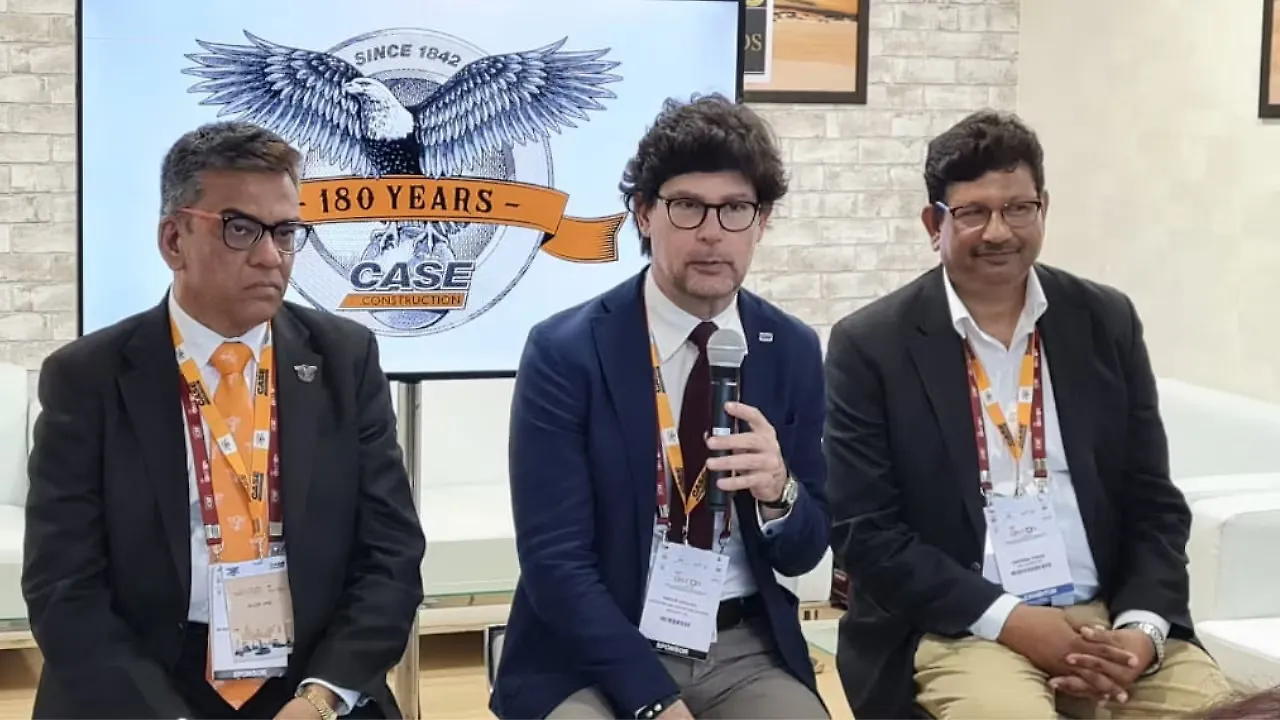
CASE Construction Equipment, a brand of CNH Industrial, launched the 770 NXe 49.5hp backhoe loader together with the 770 EX Plus, 851 FX CP variant, 1107EX Soil Vibratory Compactor, CX220C LC-HD Excavator, and 845C Motor Grader, at the EXCON 2022, held recently in Bangalore. Alongside, the company celebrated its 180th anniversary.
Globally, the company is also working on introducing electric powertrain enabled construction equipment in India and other parts of the world. It is not sure of the launch timeline, but the future certainly belongs to electic and other green fuels.
Satendra Tiwari, Plant Head, CASE Construction Equipment, highlighted, “We are aligned with the Government of India’s ‘Atma Nirbhar Bharat’ and ‘Made in India’ campaigns and have worked extensively in increasing our focus on localising our product range. Today, CASE India engineers, develop and manufacture products for India and 30 other countries.'
The company claims to have achieved 75% indigenisation for the products and solutions it manufactures in the country. CASE Construction, as highlighted by Alok Jha, Director-Sales & Marketing, India & SAARC – CASE Construction Equipment, presently has 66 dealers and 203 touchpoints in the country.
India As An Export Hub
Fabrizio Cepollina, Vice President, Construction Segment in Africa, Middle East and Asia Pacific AME and APAC, CNH Industrial, told Mobility Outlook that the company is looking at expanding its exports from India. CASE aims to export construction equipment manufactured in India to several countries in Europe, Africa, Asia and other parts of the world.
'India is already supporting market demand in Middle Asia, Africa and several Asian countries. We are exploring the possibility of expanding our export numbers from the country. Also on cards is manufacturing more machines for Indian market. Our facility in Pithampur is well equipped to cater to the Indian market and we plan to utilise the same to its full potential for exceeding our goals,' shared Cepollina.
CASE, on average, manufactures 6,000 units of construction equipment in the country. The company noted that 4,000 of these units are sold in India, while the rest is exported to other parts of the world. Cepollina views the export market to be crucial from the profitability angle. It is worth mentioning that CNH acquired full ownership of L&T-Case in 2011. The L&T-Case was an unconsolidated joint venture established in 1999 to manufacture and sell construction equipment in India.
Cepollina added, 'We want to give this plant the opportunity to cater to the demands of the matured markets. India is a strong pillar of our overall strategy. We want to be ready for everything that the future demands, and India will play an important role in that.'

New BS Norms
The company's primary focus at the moment is on the transition of construction equipment to new BS norms. Slated to come into effect from April 2024, most of the construction equipment OEMs are working on the same as the transition is bound to increase costs of these machines.
Tiwari highlighted that CASE's present manufacturing facility has the capability to manufacture much more than what it is doing currently. 'Now that the market is opening and demand is rising after Corona time, we will be looking at increasing the capability of our manufacturing facility in India,' he noted.
The manufacturing facility, as per Tiwari, is capable of manufacturing more than 15,000 machines every year. This is with the present equipment and land parcel available with the company. However, he highlighted that if required, the manufacturing capacity can be increased further with the help of additional equipment.
Cepollina explained that the company has already invested close to $200 million in India during the last ten years and is currently evaluating on introducing two new product ranges in the country. The same, as per Cepollina, will be done in two years. EXCON, incidentally, takes place every two years.
On average, India contributes nearly $200 million to CASE's $3 billion (Construction Segment) sales every year. On the global and Indian levels, the company's agricultural division contributes more to its revenues than its construction division.
'We want to further boost the construction division in India and all other parts of the world because we feel that this business has the capability to serve many more people of the world. We want to do much more with the product range from the construction division. We see construction equipment as an exciting opportunity,' shared Cepollina.
Acquisitions To Augment Technology
Focusing on making technological advancements, the company has acquired a few companies recently. It views technology as an enabler for the future of agriculture and the construction equipment industry. Its most recent acquisition was in late 2021 when it acquired Raven Industries, a US-based leader in precision agriculture technology. CASE had also signed an agreement to purchase 90% of the capital stock of Sampierana S.p.A last year, which is known in Europe for its mini and midi excavators and special undercarriages.
'We want to equip all our products with connected features by the end of the second quarter this year. We would have already achieved the same if not for the CoronaVirus outbreak,' pointed out Cepollina.
Instead of developing different connected solutions for different markets, the company is targeting to develop a global digital platform that will cater to the technological needs of all the markets from one system.
'One system will cater to all the demands whether they are from dealers or from customers looking to source parts from CASE. The system at one end will have the company and dealers, and at the other it will have the customers. Customers will be able to check how operators are using the machines and a lot of other things. The same will also work for a fleet and its coordination,' explained Cepollina.